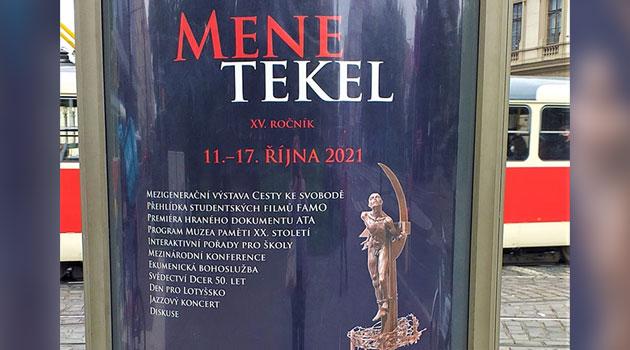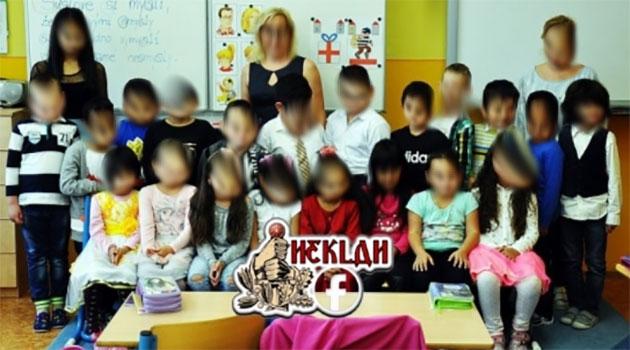Czech anti-totalitarianism festival Mene Tekel features exhibit about the architecture competition for the Lety Memorial to the Holocaust

“The Right to the Law” is the theme of this year’s anti-totalitarian festival, Mene Tekel, in Prague. The event, now in its final days, offered a concert, a conference, exhibitions and film screenings.
Religious worship is also part of the festival. This is the fifteenth time it has been held.
The program began on Monday afternoon with exhibition openings. At the New Town Hall (Novoměstská radnice) people can view an exhibit about the landscape-architecture competition for the design of the new Lety u Písku Memorial to the Holocaust of the Roma and Sinti in Bohemia, as well as an exhibition about the days in 1989 when thousands of East Germans fled to West Germany by entering Czechoslovakia and coming to the West German Embassy in Prague.
An exhibition about the subject of statehood for Ukraine is outdoors on Karlovo náměstí. The Church of Saint Ignatius is showing an exhibit about the fates of the priests Jan Bula and Václav Drbola, who were murdered by the Czechoslovak communist regime.
The grand opening of the festival featured a screening of the docudrama “The ATA” at the MAT cinema. The film tells the story of the show trial of Stříteský et al, the aim of which was to tarnish the reputation of the church and the Scouts.
In 1950, 24 persons, nine of whom were juveniles, were convicted by the proceedings. František Ambrož Stříteský, an educator who was the Rector of the Piarist College, was charged with crimes for which he could have been sentenced to death, but he was sentenced to prison for 25 years and released after serving 10 years of his sentence. The festival’s offering on Tuesday was a review of works by film students from the Miroslav Ondříček Film Academy in Písek, also at the MAT cinema.
Wednesday and Thursday saw the Historical Laboratory part of the festival, where pupils analyzed documents and film recordings from the totalitarian era. At the Academia Café, Darina Ničová’s book trilogy Proti proud (Against the Current) was presented.
Ničová tells the story of her great-grandfather, Jan Fukala, who was convicted in 1940 of participating in the anti-Nazi resistance. He died in Auschwitz in 1943 and after the war was awarded honors in memoriam.
Wednesday evening also saw the screening of the documentary film “My Father, the Spy” at the MAT cinema as part of the festival’s Evening for Latvia. “The Right to Law” conference in the Czech Senate on Thursday, featured Dr. Hist. Gints Apals from the Museum of the Occupation of Latvia, PhDr Petra Svobodová of the Museum of Romani Culture, the director of the Institute for the Study of Totalitarian Regimes, Zdeněk Hazdra, and former political prisoner Leo Žídek.
On Thursday evening, the Václav Havel Library held an event about the Czechoslovak State Secret Police operations launched against certain social groups during communism. On Friday afternoon the documentary “A Farm” (Státek) was screened at the MAT cinema, about the communist regime’s persecution of a family in the Czechoslovakia of the 1950s.
On Friday evening the New Town Hall featured a jazz concert with the singer Lee Andrew Davison and the Jana Koubková Quartet. Today there will be religious worship dedicated to the victims of totalitarianism at the Church of Saint Ignatius.
The Mene Tekel project is the brainchild of Daniela and Jan Řeřicha, and academic and memorial institutions collaborate on its program. Jan Řeřicha, who previously directed the festival, passed away in 2019.
